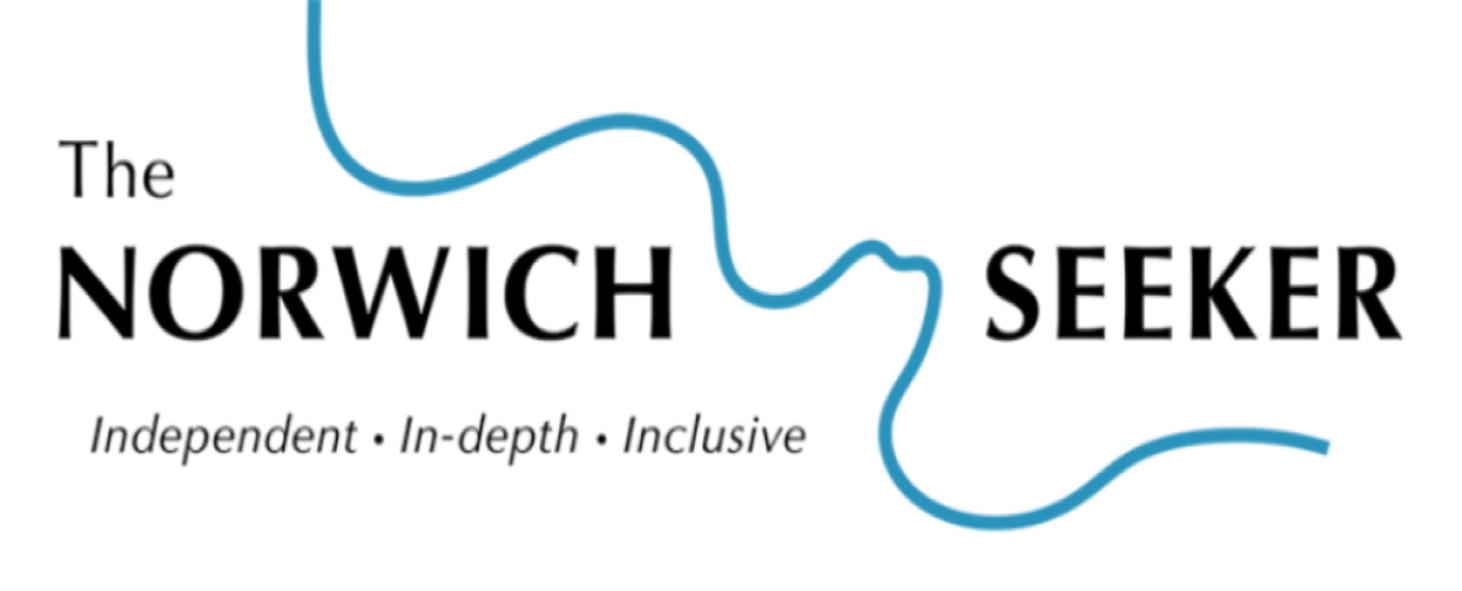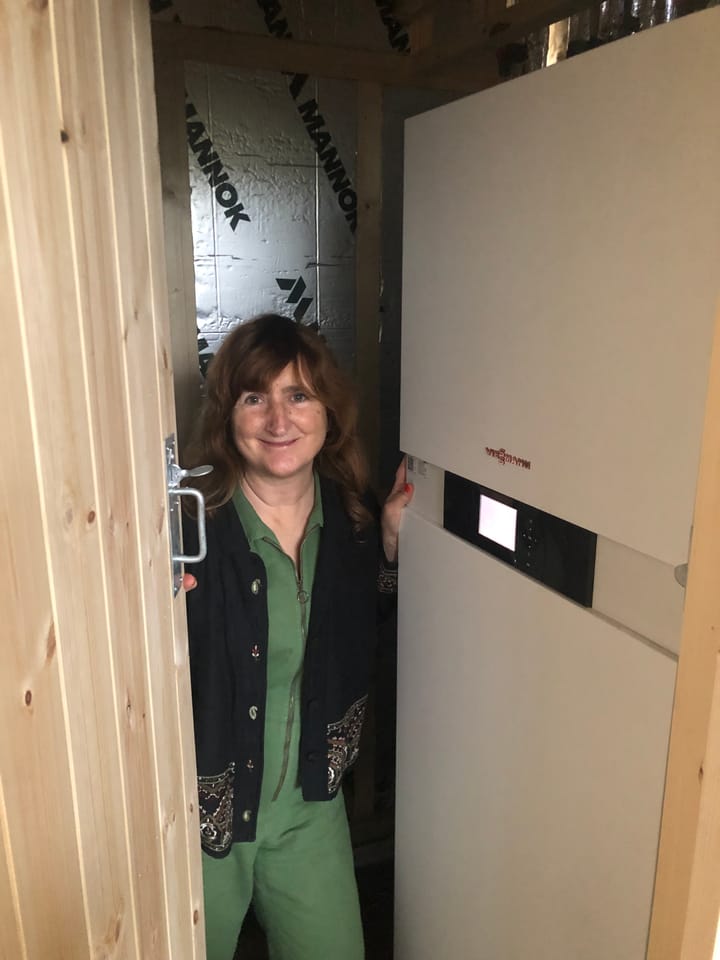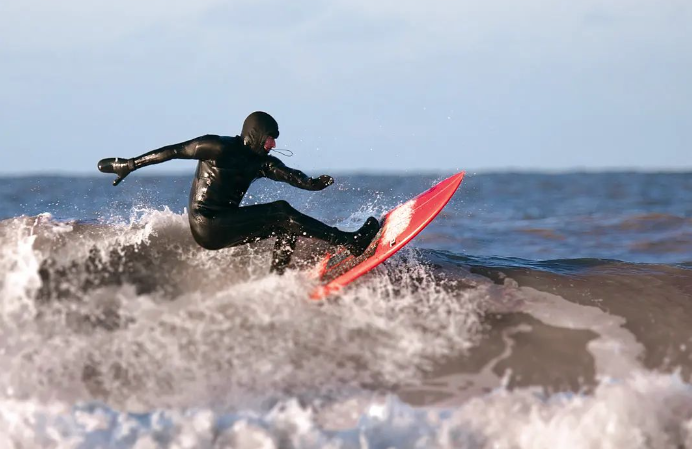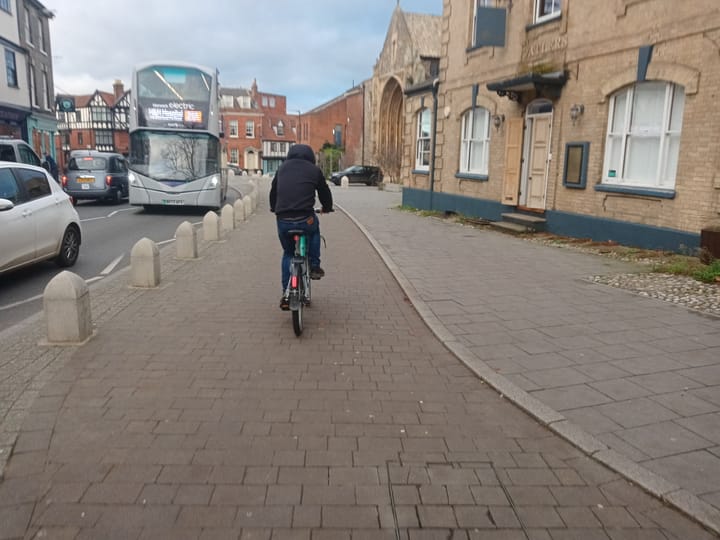A night out with Prince of Wales Road's Safe Haven team
Out with the Norwich Safe Haven Team

Good morning from The Seeker
Firstly a big welcome to the 12 new Seekers who have signed up since last Saturday - meaning we now have 1011 subscribers!
Like our regular readers you will discover that one of the things I want to do as editor is help support the next generation of journalists.
So today I'm delighted to introduce Hannah Bradfield, a trainee journalist who is putting herself through an online qualification with the NCTJ, one of our industry accrediting bodies.
Hannah (who yesterday sat her NCTJ public affairs exam - 🤞) got in touch with a pitch for an in-depth piece about the Norwich Safe Haven project, who no doubt will be busy supporting people in and around Prince of Wales Road tonight.
As you'll read she discovered how a greater need for mental health support is behind them taking over from the SOS Bus next year.
Plus she reveals the dangers of a new synthetic opiate, known as metonitazene whose use has been rising in our city since the Taliban's opium ban in Afghanistan hit supplies of heroin.
And she shows the human side of those giving up their time to make sure people are safe when enjoying a night out in our city.
Thank you for reading The Seeker!
Shaun
A night out
If you have ever been on a night out in Norwich, you may have noticed — perhaps
subconsciously — a grey and white mobile unit at the top of Prince of Wales road.
This is the base of volunteer-run community project Safe Haven which operates on
Saturday nights.
Not part of the SOS Bus, Safe Haven is its own, entirely self-funded organisation,
offering support to anyone who needs it — whether that's life-saving medical
assistance or a warm cuppa and phone charger.
After spending time with Safe Haven, including a Saturday night in October — a triple whammy of Halloween, pay weekend, and a full moon — I can safely say they are some of the kindest (and funniest) people I have ever met.
The team even ensured I had a vegetarian pizza for their 2am snack break. If that isn’t kindness, I’m not sure what is.
Mental health
Wymondham town councillor Dave Roberts, who works in Aviva’s retirement centre, joined Safe Haven in 2017.

A trained mental health first aider and retired RAF medic, he brings with him a wealth of experience.
Mental health cases, Dave says, appear to have shifted post-pandemic as people were unable or unwilling to seek help earlier.
It means problems have building up so when Dave and his colleagues gets to see them things are much worse.
“This is why they seem to be bigger (mental health) issues rather than smaller issues that can be solved on the night,” he says.
The team, however, remains available for people when they need it and will point people to further support.
It is an area in which Safe Haven volunteer and former mental health recovery
worker Toby Kelly is well-versed. Having worked with people experiencing drug abuse, homelessness, and violent pasts, Toby — who works alongside Dave at
Aviva — says his lived experiences have helped in these situations.
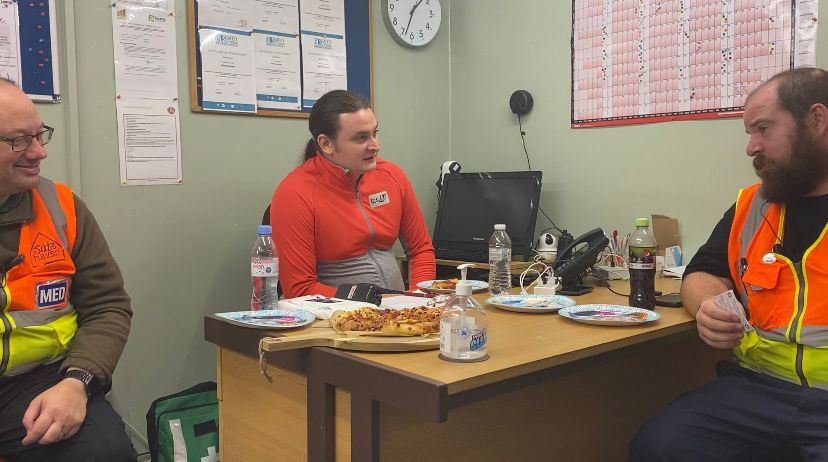
He says: “All people need is just for someone to go: ‘It's alright. You are okay.’ They will be safe. That is the most rewarding part.”
Danny Fowler is another regular Safe Haven volunteer. A former A&E senior healthcare assistant and now a healthcare assistant at a GP, Danny has an extensive first-aid background.
“After 12 years, I wanted to do something to put some skills to use and help people out in the streets,” he says.
He finds it rewarding when parents come to collect their children.
“Even though the child could be 30 years old, the fact the parents come, and (you see) the relief on their face that their child is okay."
Spot the difference? Safe Haven and the SOS Bus

The SOS Bus — another brilliant, perhaps more well-known local service — recently had its NHS funding withdrawn by Norfolk and Waveney Integrated Care Board. The ICB has instead commissioned St John Ambulance to provide a “like-for-like” service from April 2024.
The ICB said at the time that it wanted to shift it focus towards providing additional mental health support and reducing pressures on ambulances.
At the same time Norfolk Constabulary's plans to roll out the Right Care Right Person initiative means police officers will stop responding to mental health related calls unless there is an “immediate threat to life” or a crime has been committed.
In a statement the ICB notes the changes were based on feedback from users of the service and that St John Ambulance has a "long history" of supporting the NHS running late-night ‘safe haven’ schemes across the UK in partnership with local police and councils.
Alice Gray, District Manager for St John Ambulance (SJA) in Norfolk, says: “St John Ambulance was one of the co-founders of the original SOS Bus and we’re pleased to be continuing to work with communities in Norwich with this new stage of Night Time Economy support.
"We will be offering our Night Time Support package which consists of an emergency ambulance, mobile treatment centre, a healthcare professional and a team of first aiders and advanced first aiders.
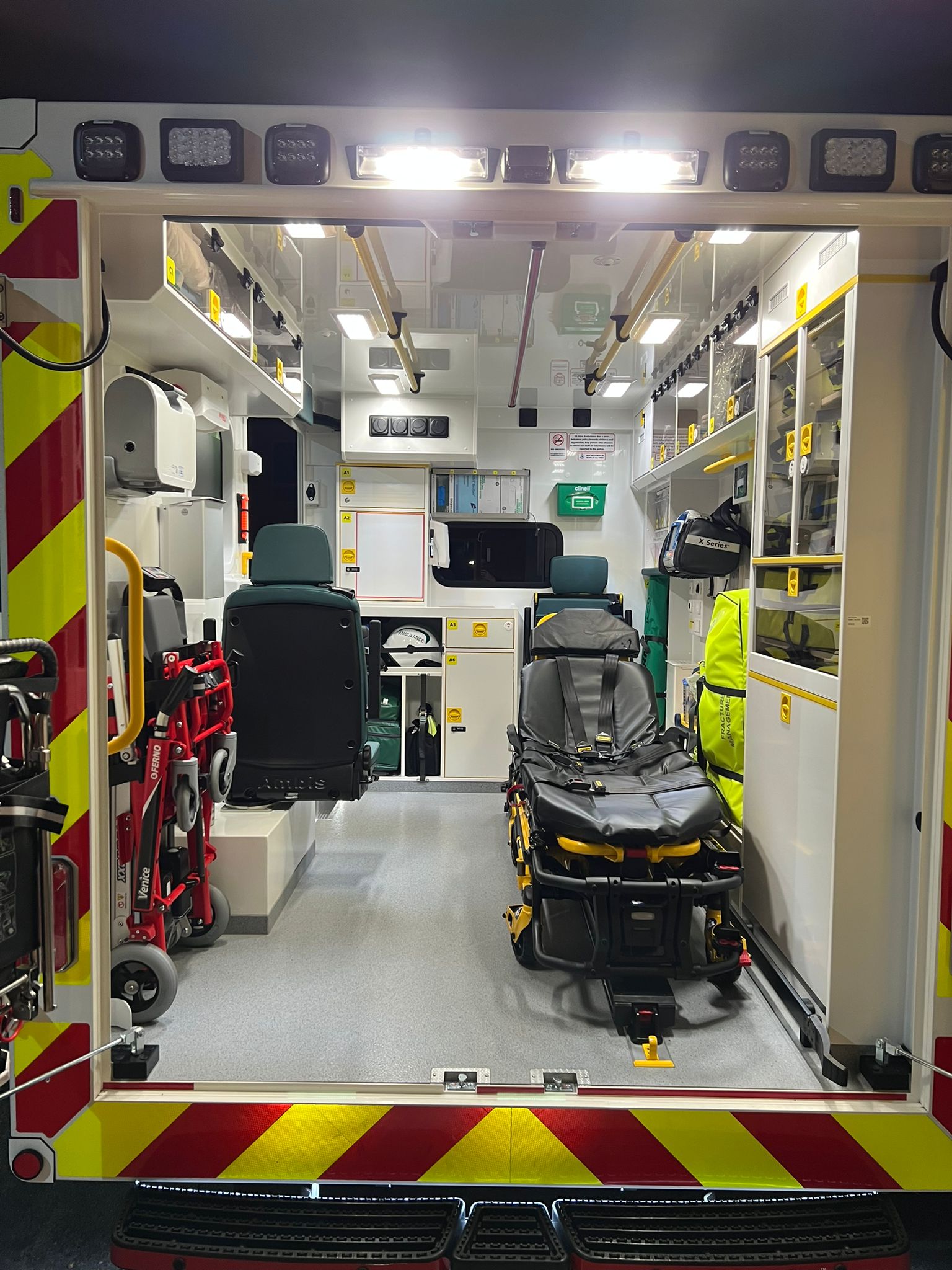
“Our ambulance provision is a step change and includes a dedicated emergency ambulance which is able to respond to all categories of 999 calls, from the ever-so-common ankle injuries we see on a night out, through unconscious intoxicated patients, to life saving first aid for cardiac arrests and other very serious conditions.
"The charity’s volunteers regularly save lives as part of other Night Time Support schemes around the country."
SJA says the service will run between two and three times a month on specific days the ICB has identified as likely to require enhanced support.
The SOS Bus, which continues to explore other funding options, operates weekly.
Safe Haven’s story
Established in 2013, Safe Haven was initially a small team of volunteers including three former community first responders, says team lead Peter Wright.
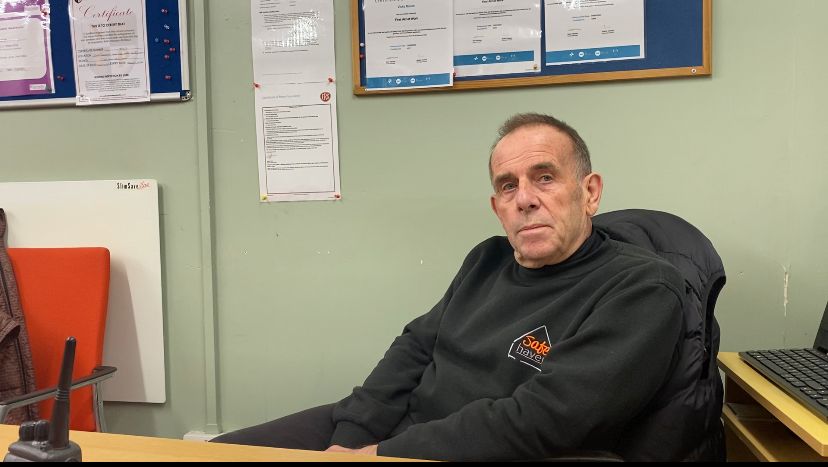
Peter, a former community first responder himself, first worked on the SOS Bus
before seeing an opportunity to start up Safe Haven.
Norwich City Council granted them the unit rent-free, and the team has been self-
funded since.
“We deal with more vulnerable people rather than what you might call straight up
drunk people," he says. "In other words, drug overdoses, medical issues, mental health issues.
"General welfare for vulnerable people."
He adds: “Sometimes the police will bring somebody in. They use us because this is
a safe space. So, on an average, you'll get a mix. Some people come in just to keep
warm in the winter.
“They sit here and they are safe,” he adds.
The team answers calls from the public, venues, emergency services, and central
CCTV.
RNLI rope-trained, Safe Haven can also rescue people from the water, and as a
result of naloxone training, has provided life-saving treatment to multiple overdose patients.
From July–September last year, Safe Haven attended and resolved 106 welfare
cases — issues like lost friends, phone charging, and emotional support.
They also attended 58 first aid calls and were able to divert 23 999 calls which would have otherwise required an ambulance.
A grateful brother
Ben from Litchfield contacted Safe Haven to thank them for helping his brother, who collapsed while on his stag do in Norwich.
He tells The Seeker: “The intervention of Safe Haven allowed us to quickly get my
brother assessed and get him to the hospital.
"We could have been waiting hours for an ambulance, and who knows how things may have progressed. Their work that night was extremely important in making sure things did not escalate beyond an already horrible situation, and we could not be more thankful.”
“We see it all on Prince of Wales”

Safe Haven has attended cases more wide-ranging than you could imagine — from
the fire brigade cutting toilet doors off, to glassing injuries and overdoses — but there is never any judgement.
This is something Jack Cross, Change, Grow, Live’s Norfolk prevention and harm
reduction coordinator, recognises.
Their work, he says "allows the possibility of removing stigma for people who use
substances, which often simply comes from a lack of understanding.”
Jack, who delivered Safe Haven’s naloxone training, says his team has begun to see a rapid spike in overdoses resulting from new synthetic opiates following the Taliban’s ban on opium production in Afghanistan.
Within Norfolk, he says: “We have confirmed the presence of metonitazene at
overdoses, a substance understood to be three times stronger than fentanyl, which
in turn is considered 100 times stronger than regular street heroin.
Worryingly, these synthetic opiates have presented in supplies of non-opiate substances too.”
Safe Haven also highlights the prevalence of people mixing prescription medication with either alcohol and/or illicit drugs. Often unaware that alcohol can react harmfully with some medications — including those for depression and anxiety — they are becoming quite ill.
Safe space
Given that they are often faced with mentally and emotionally intense calls, the team says compartmentalising is important.
“There will always be ones that you walk away from and go: ‘that's going to stay with me for a while’,” Toby Kelly says.
CPR cases especially, the team say, hit home.
However, Toby adds: “For the most part it is just getting in, playing with my dog, and reminding myself that this is home. This is where I'm safe.”
The power of 'POBs'
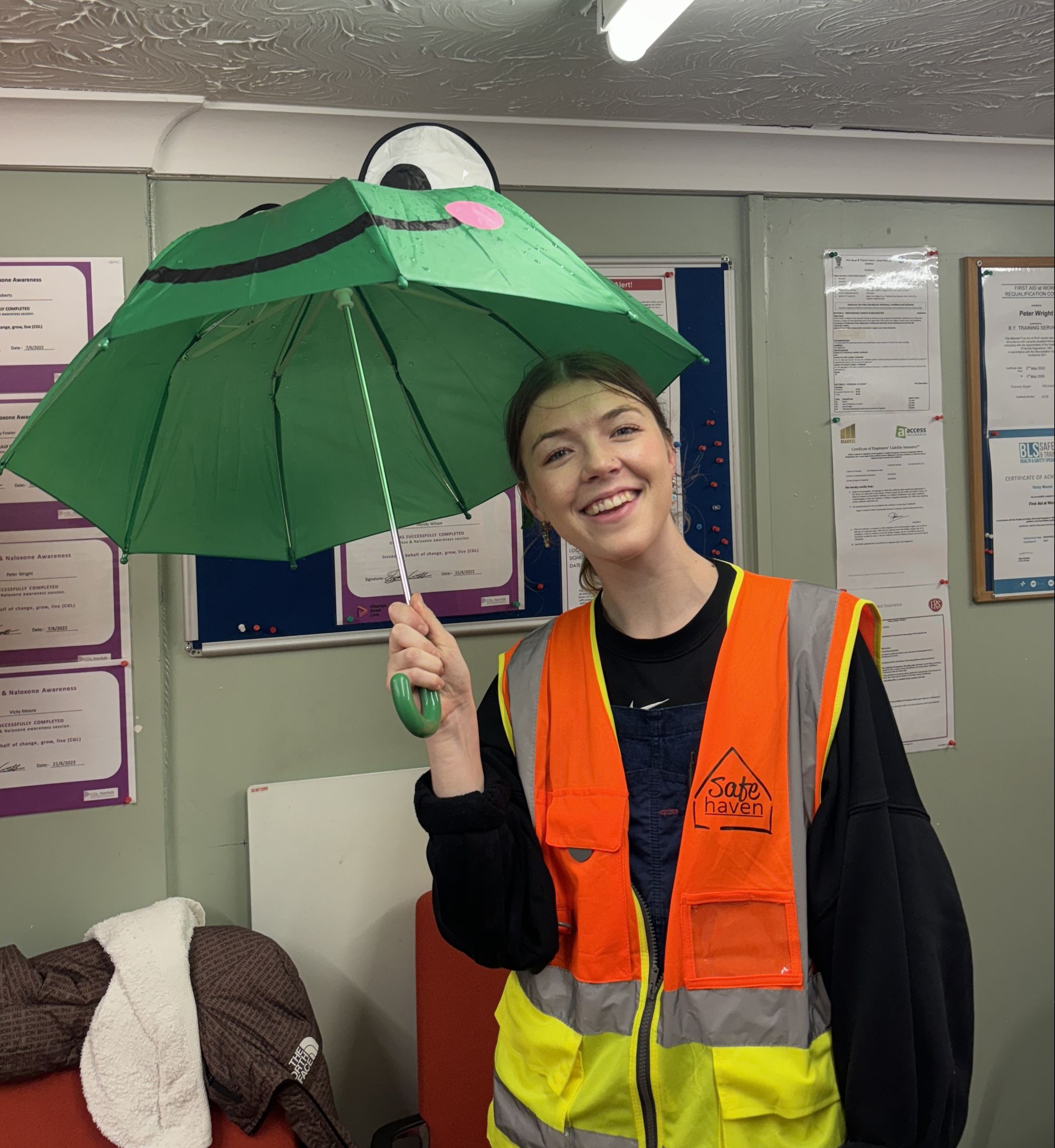
No qualifications are required to volunteer with Safe Haven. All the team asks is that you are comfortable talking to and reassuring people.
“Consider if it's a situation you're happy to put yourself in first. If you think it is, and you would like to try, and you want to help people, do it. It is going to give you so much experience in so many different ways,” advises Toby.
On many occasions, volunteers have found people alone and unconscious and
helped them to safety. One time, after noticing an alleyway’s automatic light turning off and on, they discovered an unconscious woman approaching hypothermic levels.
In July–September 2022, Safe Haven attended to 27 lone women, which resulted in driving them home, collection from base or organising a taxi.
In fact people out and about are clearly grateful for what they do. And it was while with them that I first experienced a “POB” or pat-on-the-back after someone enthusiastically patted my neon back, thanking me for “all my work”.
POBs, though, are not what the team goes out looking for.
“If we go away at the end of the night, and everybody has got home safely, then
we’ve done our jobs,” says Dave.

